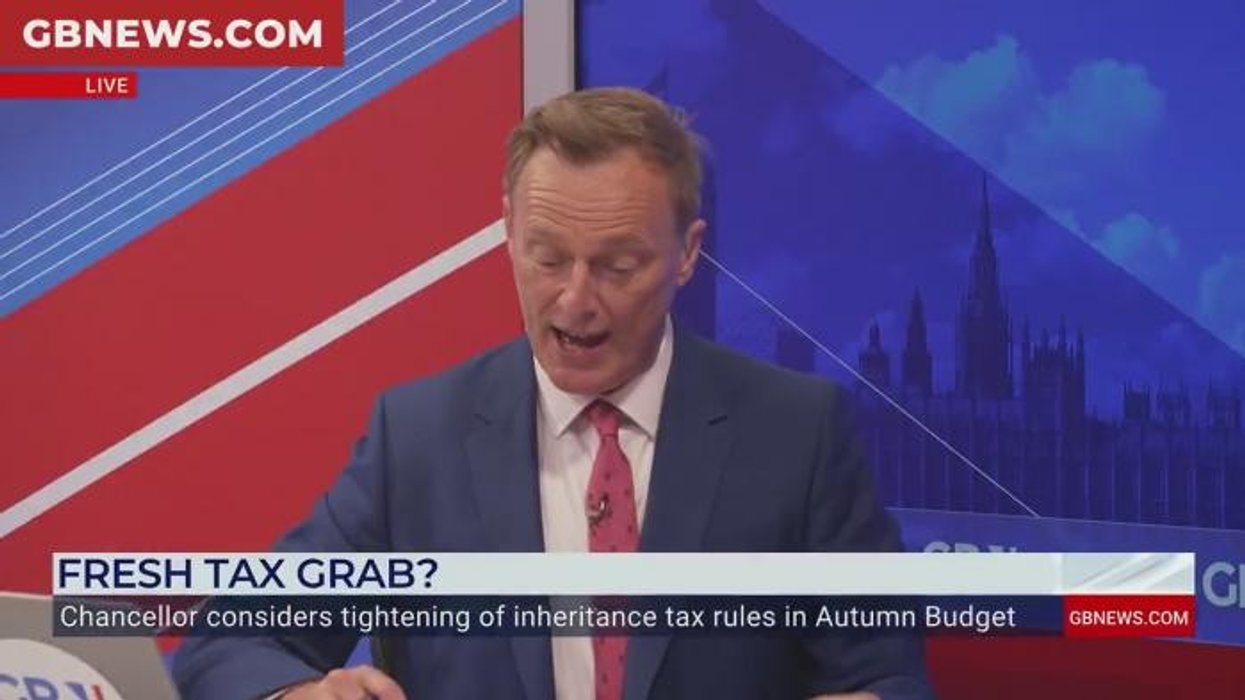Inheritance tax alert: Families can cut their bill by £70,000 with legal tax hack 'everyone needs to know'

Families face soaring inheritance tax bills as new rules loom, but experts say simple legal steps could save loved ones tens of thousands
Don't Miss
Most Read
Families are being urged to act now as experts warn many are paying far more inheritance tax than they need to.
A simple legal move could slash bills by up to £70,000 per person but millions remain unaware of the rule.
According to HMRC, families have already paid £3.7billion in inheritance tax in just the first five months of this financial year, with receipts rising year on year as thresholds remain frozen.
Experts are warning that families could face a wave of new inheritance tax bills in the coming years unless they act now. From April 2026, valuable reliefs on business and agricultural property will be cut back, dragging far more modest family businesses into the scope of IHT.
Even bigger changes arrive in April 2027, when defined contribution pension pots will be included in estates for the first time, a move that could hit millions of households with retirement savings.
Without careful planning, these reforms could trigger a surge in tax liabilities just as asset values continue to rise.
With these looming changes set to pull even more families into the inheritance tax net, Neil Gandecha from Foxholes Care Home has shared five legal inheritance tax hacks "every family should know".
1. Maximise the Nil-Rate Band (NRB)
Britons can utilise the standard inheritance tax-free threshold of £325,000 per person, known as the Nil-Rate Band.
Couples in marriages or civil partnerships can merge their allowances, creating a combined tax-free amount of £650,000.Additional savings become available through claims on unused allowances from deceased former spouses.
This provision creates further opportunities for tax reduction.
2. Use the Residence Nil-Rate Band (RNRB)
Mr Gandecha explained one of the easiest but most overlooked ways to save money is by using the Residence Nil-Rate Band (RNRB). This rule lets people pass their main home to children or grandchildren and gives an extra £175,000 tax-free allowance on top of the standard £325,000 limit.
He said: "For many families, this rule alone can reduce inheritance tax bills by £70,000 per person."
LATEST DEVELOPMENTS:

The standard inheritance tax rate is 40 per cent above the £325,000 threshold
| GETTYHe added: "Yet it’s one of the most overlooked tax-saving opportunities. Having open conversations and planning early ensures more of your hard-earned money goes to your loved ones, not the taxman."
The RNRB was introduced in 2017 to make it easier for families to pass on their home without a huge tax hit. It means a single person can leave up to £500,000 tax-free, while couples can pass on up to £1million.
Anything above these limits is usually taxed at 40 per cent. So, an estate benefiting from the full RNRB will pay £70,000 less tax.
Importantly, the rule covers stepchildren and adopted children too. Even if a family sold their home or downsized since July 2015, they can still benefit.
But there are limits. If one's estate is worth more than £2million, the allowance starts to shrink, and once it reaches £2.35million (or £2.7million for couples), the relief disappears altogether.
 Inheritance tax can be reduced by giving gifts - but rules do apply | GETTY
Inheritance tax can be reduced by giving gifts - but rules do apply | GETTYMr Gandecha emphasises that discussing inheritance arrangements has become increasingly vital.
These conversations, whilst potentially uncomfortable, serve as essential financial protection and provide reassurance for all parties involved.
3. Gift Assets Early and Survive 7 Years
The seven-year rule represents another significant planning opportunity.Assets transferred more than seven years before death escape inheritance tax entirely, whilst gifts made within this period may benefit from tapered relief rates. Property, investments and business interests particularly benefit from early transfers.
A £200,000 gift made five years before death could yield tax savings of tens of thousands, depending on applicable taper relief.
4. Leverage Trusts for Control and Tax Planning
Trust arrangements offer both control and tax efficiency. Discretionary trusts enable assets to grow beyond the estate's taxable value whilst maintaining oversight of beneficiary distributions.
Mr Gandecha said: "Placing assets into certain trusts can reduce the taxable value of your estate, while still allowing you to control how and when beneficiaries receive them.
"Pro Tip: Investments held in discretionary trusts can grow outside the estate for inheritance tax purposes, helping preserve wealth for future generations."

Experts are warning that families could face a wave of new inheritance tax bills in the coming years unless they act now
| GETTY5. Make Use of Exempt Transfers and Reliefs
He continued: "Assets placed between spouses or civil partners are exempt, with no limit on the value transferred. Charitable donations are also inheritance tax-free. Business Property Relief and Agricultural Property Relief may apply, potentially reducing the taxable value of qualifying assets by 50 to 100 per cent.
"Pro Tip: Combining these exemptions strategically can significantly reduce the inheritance tax burden on estates."
Strategic combination of these various exemptions can substantially decrease estates' inheritance tax obligations.
"Conversations about inheritance can feel daunting, but they are also a financial safeguard and peace of mind," Mr Gandecha states.
The expert stresses that current circumstances make inheritance planning particularly crucial. "Effective inheritance planning is more crucial than ever.
"By taking proactive steps today, families can safeguard wealth, protect assets, and ensure that more of their hard-earned money is passed on to loved ones."











